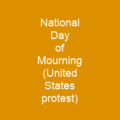What is a State Funeral?
A state funeral is more than just an end to someone’s life; it’s a beginning of remembrance, a grand finale that honors the legacy left behind by those who have served their nation with distinction. Imagine a stage where history and tradition come together in a spectacle of respect and reverence – that’s what a state funeral embodies.
Historical Context
Have you ever wondered how such ceremonies began? Well, they date back to ancient times when societies like Athens and Rome held public funerals for their leaders. These were not just about saying goodbye but also about celebrating the life of a person who had significantly impacted society.
Modern Practices
In contemporary times, state funerals are still a significant part of national mourning. They involve pomp and ceremony that reflect the importance of the individual’s role in the nation’s history. For instance, in Italy, state funerals are granted to those who have served with honor, ensuring their contributions are not forgotten.
State Funerals Around the World
Czech Republic: Here, state funerals are a solemn affair that brings together the nation. The protocol is strict and follows a set of traditions that ensure every detail is perfect in honoring the deceased.
Canada: In Canada, state funerals often involve military honors, reflecting the country’s strong connection to its armed forces. These ceremonies are broadcasted widely, ensuring that even those who couldn’t attend can pay their respects from afar.
India: India has seen several notable state funerals, including those of Bal Thackeray, Ratan Tata, and Dr. Manmohan Singh. Each one is a testament to the impact these individuals had on Indian society.
Italy: Italy’s protocol for state funerals is quite elaborate, involving an honor guard, official orations, and public mourning periods. These ceremonies are not just about death but also about celebrating life and its contributions.
Thailand: In Thailand, the monarchy plays a significant role in state funerals, making them a blend of royal and national traditions. The ceremonies are grand affairs that reflect the deep respect for the deceased’s legacy.
United Kingdom: The UK has a long history of state funerals, with figures like Winston Churchill being honored with such ceremonies. These events often attract international attention, making them a global spectacle.
United States: In the US, state funerals are typically reserved for high-ranking officials and military heroes. They involve extensive media coverage and public mourning periods, ensuring that the nation pays its respects to those who have served with distinction.
The Significance of State Funerals
Why do we hold such elaborate ceremonies? It’s not just about saying goodbye; it’s about acknowledging the impact these individuals had on society. These funerals serve as a reminder of the values and principles that shaped our nation.
Public Interest and Media Coverage
Do state funerals generate public interest? Absolutely! They are often covered extensively by national and global media, ensuring that even those who couldn’t attend can participate in the mourning process. These ceremonies become a focal point for national unity and remembrance.
The Future of State Funerals
As we move forward, will state funerals continue to evolve? It’s likely that they will adapt to changing times while still maintaining their core traditions. The digital age has already brought new dimensions to these ceremonies, with live streams and social media allowing for broader participation.

State funerals are a powerful reminder of the importance of remembering those who have served their nations with distinction. They bridge the gap between past and present, ensuring that the legacies of these individuals continue to inspire future generations.
Conclusion: State funerals serve as a poignant reminder of our shared history and the impact of those who have dedicated their lives to serving their countries. These ceremonies are not just about death but also about celebrating life and its contributions.
You want to know more about State funeral?
This page is based on the article State funeral published in Wikipedia (retrieved on December 30, 2024) and was automatically summarized using artificial intelligence.







